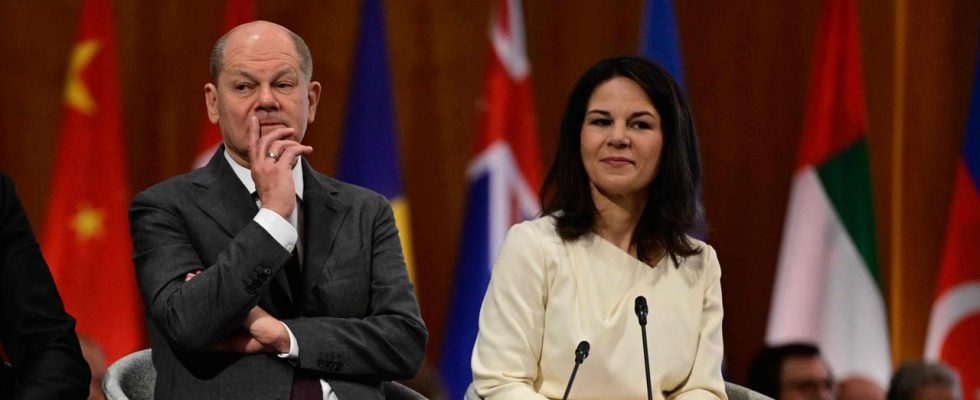A lot of money is needed to slow down climate change. The Petersberg Climate Dialogue was about where this comes from. According to Chancellor Scholz, public money is not enough. He called for private investment and held the emerging countries accountable.
Chancellor Olaf Scholz is calling for a rethink in the financing of climate protection worldwide. Public money alone would not be enough to finance the energy transition, he said at the conclusion of the Petersberg Climate Dialogue in Berlin.
Instead, the financing of climate protection must be geared more towards private investments. This would require clear timetables and good political framework conditions. “Private investors care about a reliable regulatory framework and good governance,” he said.
This can be achieved, for example, if development banks secure investments in local currencies or promote large projects together with private investors.
Experts: Five trillion US dollars annually for the climate
Foreign Minister Annalena Baerbock also called for more private money for climate protection at the climate dialogue. Baerbock wants to make the industrialized countries – especially the G20 countries – more financially responsible, but also believes more private capital is necessary. The private sector must be persuaded to invest significantly more in a “cleaner and more resilient” economy in developing countries, said Baerbock.
According to calculations by a group of experts, five trillion US dollars will be needed annually by 2030 for the ecological transition worldwide, of which more than two trillion will go to developing countries. Half of these two trillion must come from the countries themselves, said Baerbock.
“That’s a huge sum,” emphasized Scholz, who also referred to the experts’ figures. A small group of states could not raise the money.
Scholz: Also Emerging markets have to contribute more
Baerbock assured that Germany would continue to keep its financial promises. According to Scholz, the industrialized countries would continue to accept their responsibility and give money to poor countries and those particularly threatened by climate change.
But the emerging countries also have to contribute more: many of them have now become large CO2 producers with increasing economic power, while the share of industrialized countries in global emissions has fallen sharply. “Countries that have contributed significantly to emissions over the past 30 years must also contribute to public climate financing if they are economically able to do so,” demanded Scholz.
Criticism: Germany is not ambitious enough
The two-day Petersberg Climate Dialogue is considered an important international preparatory meeting for the world climate conferences. 40 countries took part. At the World Climate Conference in November in Baku, among other things, a new climate financing target for the period after 2025 will be negotiated. This must be formulated more ambitiously with German participation, demanded the climate expert from the aid organization Bread for the World, Sabine Minninger.
She was disappointed by Scholz’s speech at the Petersberg Climate Dialogue. He missed the chance to make “new and ambitious announcements”. Environmental organizations also expressed themselves critically: the vague confirmation of existing commitments is not enough to give the urgently needed boost to containing the global climate crisis, explained the head of Germanwatch’s Berlin office, Lutz Weischer.

